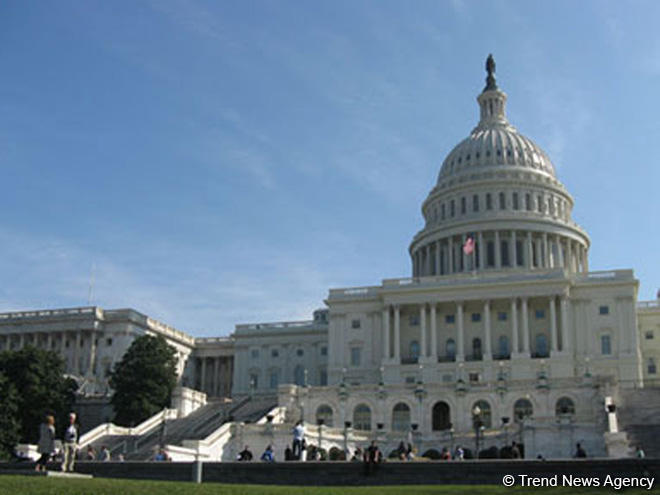Baku, Azerbaijan, March 30
By Fikret Dolukhanov – Trend:
Yerevan and Zangazur are truly historical Azerbaijani lands, like Samtskhe-Javakheti is a Georgian land, the Georgian online newspaper Kavkaz Plus said in comments on newly-appointed Armenian Ambassador to Georgia Ruben Sadoyan's visit to the Samtskhe-Javakheti region, where he made absolutely undiplomatic and offensive statements regarding historical facts, of which the Azerbaijani president has earlier reminded.
"The lands of modern Armenia were a part of such historical states as the Azerbaijani Irevan Khanate, the Nakhchivan Khanate and the Karabakh Khanate. The far north of the present-day Armenia was first a part of the unified Georgia, and then the Georgian Kartli Kingdom," according to the online newspaper.
Kavkaz Plus reminds that Armenians began to migrate to the regions of Samtskhe-Javakheti, Irevan and Zangazur several centuries ago, and eventually began to declare these lands, as well as cultural monuments located there as "primordially Armenian".
"Later Armenians appeared in Georgian Abkhazia. And today they, expelling the indigenous Georgian population, have turned into a major ethnic group in this separatist territory and exceed the number of Abkhazians there," it says.
It turns out that the Armenian nationalists profess aggressive insanity against Georgia, and the Georgian state suffers from this, Kavkaz Plus added.
Georgia, says the report, faced the problem of accommodating more than 300,000 refugees expelled by Armenians from Abkhazia, just as Azerbaijan faced the problem of more than one million refugees from the Armenian-occupied Karabakh and over 200,000 Azerbaijanis from the territories of the Armenian SSR, including Yerevan and Zangazur.
“Armenia not only does not sympathize with the Georgian refugees from Abkhazia, it regularly votes at the UN General Assembly against their return to their homes. Moreover, Armenian President Serzh Sargsyan invited representatives of the Sukhumi separatist regime and met with them in the Azerbaijani territories occupied by Armenia,” the report says.
Kavkaz Plus reminds that Armenians, appropriating all the Georgian churches and monasteries in the north of Armenia to themselves without exception, claim for other 465 churches in the territory of Georgia, and this despite the fact that Armenians barbarously destroyed all the monuments of Azerbaijani culture in the historical Azerbaijani lands – Yerevan and Zangazur.
"Isn't it too much for Ambassador Ruben Sadoyan, who acts in Georgia’s territory as a "master" and, in fact, provokes separatist sentiments among the Armenians living in Georgia by his trips and speeches?" asks Kavkaz Plus.
Georgia’s Samtskhe-Javakheti region turned into a stumbling block between Armenia and Georgia long ago. Attention is not paid to the Javakheti issue only thanks to Georgia’s balanced foreign policy and Armenia’s fear to lose Georgia as a country through which it has access to Russia.
However, Armenia has territorial claims to virtually all its neighbors. Armenians of Samtskhe-Javakheti region like to talk about the "policy of repression", "ancient Armenian origin" of the toponym and demand autonomy. All these sentiments are still to a certain extent restrained by Armenia's reluctance to spoil relations with Georgia.
However, the Javakheti issue has never completely disappeared. In the minds of many Armenians and pro-Armenian circles it is associated and closely intertwined with the Karabakh issue. So, the issue of allocating financial assistance to Armenia, the separatist regime in Nagorno-Karabakh and the Armenians in Samtskhe-Javakheti has been discussed at the recent hearings in the US Congress.
This may seem strange to a person not familiar with the situation, because USAID covers each of the countries of the South Caucasus region separately. Samtskhe-Javakheti is a part of Georgia, and not even an autonomous entity. Why would the legislature of a third country consider this region as taken separately from the country it belongs to?
But the recent promiscuous stance of the US Congress regarding the opinions voiced there has been shocking. This is while some members of the Congress have actually turned into emissaries of foreign states, in this case of Armenia. Naturally, the call for assistance to Samtskhe-Javakheti is not an initiative of the US congressmen, but of their sponsors and inspirers.
Raising such a topic in the US Congress is an attempt by Armenia and the Armenian diaspora using unscrupulous congressmen to lay the foundation for Washington's position favoring the Armenian interests.
It turns out that Armenia, while trying not to escalate the Samtskhe-Javakheti issue, still doesn’t forget about it, and constantly, in one way or another, keeps its relevance. The Karabakh issue has been simmering for years in the same way, in order to break out at the first opportunity in the form of undisguised aggressive separatism.
It is not so hard to guess why Armenia constantly reminds about the Samtskhe-Javakheti issue, and Georgia should think about it first of all. In Azerbaijan, the Samtskhe-Javakheti issue seems painfully familiar to many people.






